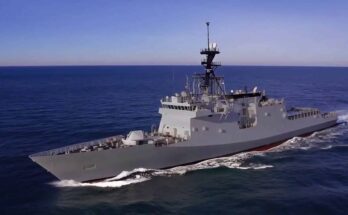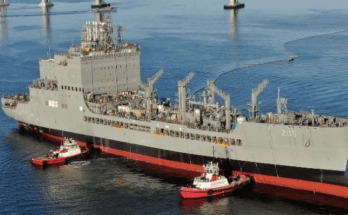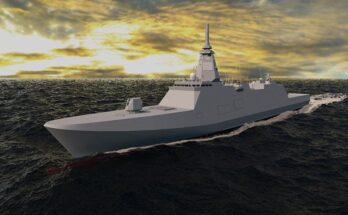Canada has been forced to temporarily halt its frigate acquisition program following a ruling from the Canadian International Trade Tribunal (CTT). In October, a team of Lockheed Martin Canada and BAE Systems offering the Type 26 frigate was identified as the preferred bidder in the Canadian Surface Combatant program, which will see the construction of 15 warships.
One of the losing bidders, Alion Canada, filed a complaint with the CITT, arguing that the Type 26 does not meet the Royal Canadian Navy’s requirements, including speed and space for crew berths. The company, a subsidiary of Virginia-based Alion Science and Technology Corporation, partnered with Damen Shipbuilding, Atlas Elektronik, and Hensoldt to offer a ship based on the Dutch De Zeven Provincien Air Defense and Command frigate.
The CITT announced that it will review the complaint, and has directed the government to postpone a contract award until the review is complete.
The selection of the Type 26 as the preferred option did not result in an immediate contract. Rather, the preferred bidder status signified the start of formal negotiations with the hope of awarding a contract in early 2019. An unnamed senior official with Public Services and Procurement Canada speaking off the record said the government is optimistic about maintaining the original timeline due to flexibility built into the schedule. However, that stance is likely based on the assumption that the CITT will rule in favor of the government. Conversely, a ruling in favor of Alion could have a significant impact on the program’s schedule if the government is forced to go back and reexamine program requirements and industry submissions.
The Navy can hardly afford a lengthy delay. The program is already significantly behind schedule, so much so that one of the ship classes the new frigate is replacing, the Iroquois class destroyer, has already been removed from service.
The government initially said it would only consider proven ship designs that were already in service with other navies, but subsequently altered the program requirements to allow the new Type 26 to compete. The complaint from Alion touched on this fact, arguing that program requirements were altered 88 times in such a manner as to allow the government to select an “unproven design platform.”
Shaun's deep-rooted interest in military equipment continues in his role as a senior defense analyst with a focus on the United States. He played an integral role in the development of Forecast International's U.S. Defense Budget Forecast, an interactive online product that tracks Pentagon acquisition programs throughout the congressional budget process. As editor of International Military Markets – North America, Shaun has cultivated a deep understanding of the vast defense markets in the United States and Canada. He is a regular contributor to Forecast International's Defense & Security Monitor blog and has co-authored white papers on global defense spending and various military programs.




